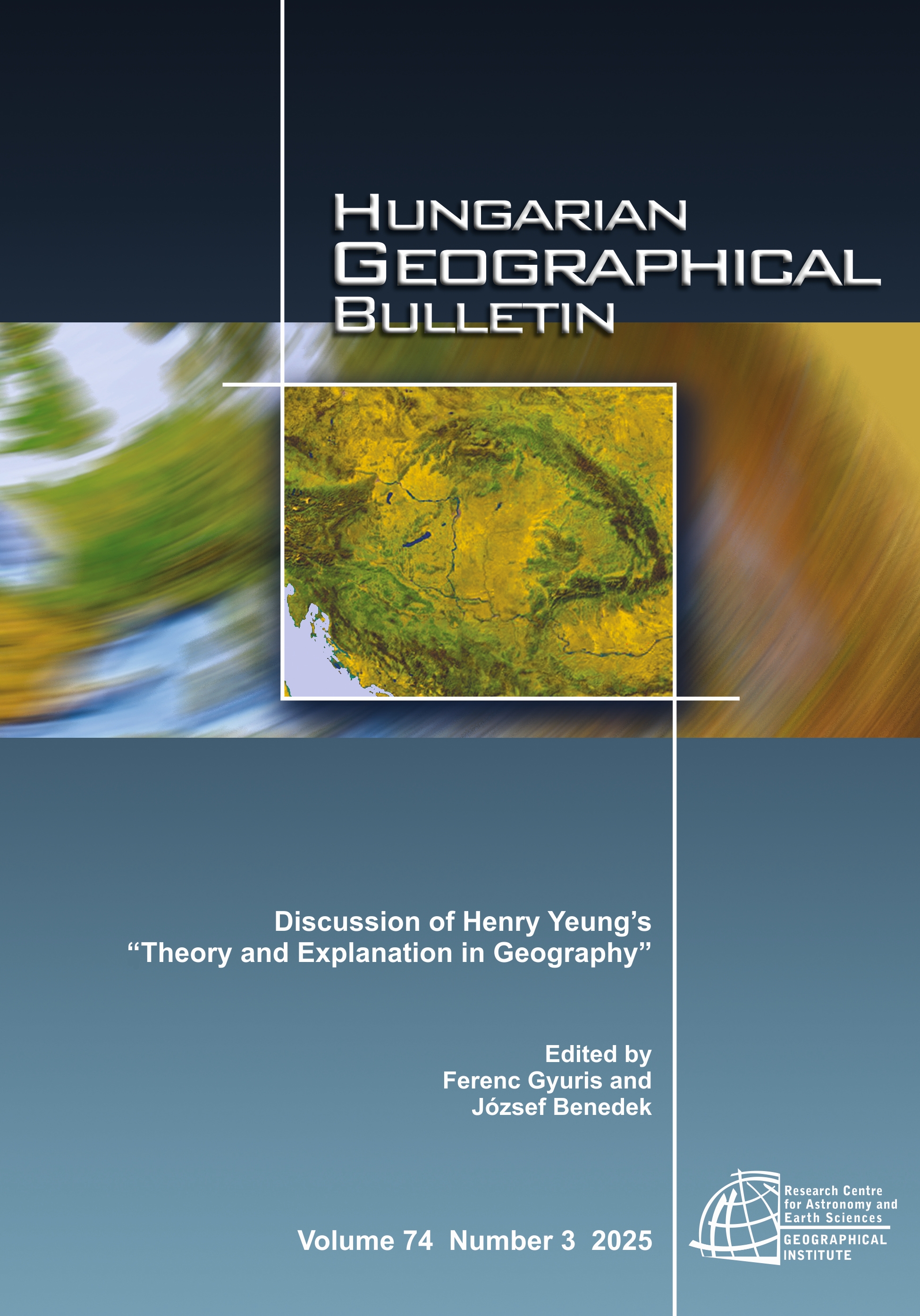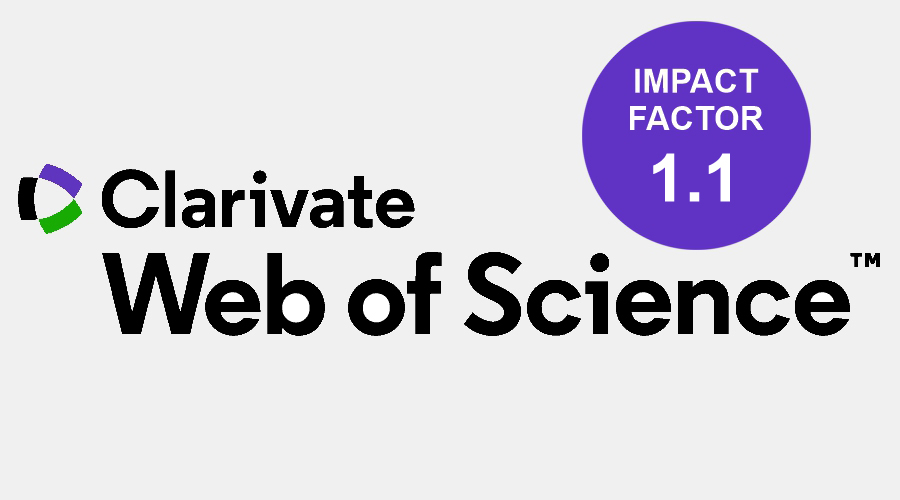Yeung, H.W.: Theory and Explanation in Geography
Abstract
-
References
Benedek, J. and Ţoiu, A. 2025. Context as ontology and epistemic infrastructure: Rethinking explanation in economic geography. Hungarian Geographical Bulletin 74. (3): 285–299. https://doi.org/10.15201/hungeobull.74.3.4
Berki, M. and Tolnai, G.N. 2018. A középső-ferencvárosi waterfront funkcionális átalakulásának cselekvőhálózat-elméleti vizsgálata (Actornetworks theory based investigation of functional transformation of Middle Ferencváros waterfront). In: Kortárs térelméletek kelet-közép-európai kontextusban. Ed.: Faragó, L., Budapest, Dialóg Campus Kiadó, 349–365.
Gyuris, F. 2025. Theory, explanation and references in geography: Comparing two seminal books by David Harvey and Henry Yeung. Hungarian Geographical Bulletin 74. (3): 269–284. https://doi.org/10.15201/hungeobull.74.3.3
Gyuris, F., Borbély, Gy. and Kocsi, V.A. 2025. Global production networks: A geographical review of a research tradition. Hungarian Geographical Bulletin 74. (3): 301–326. https://doi.org/10.15201/hungeobull.74.3.5
Harvey, D. 1969. Explanation in Geography. London, Edward Arnold.
Málovics, Gy., Creţan, R., Méreiné-Berki, B. and Tóth, J. 2019. Socio-environmental justice, participatory development, and empowerment of segregated urban Roma: Lessons from Szeged, Hungary. Cities: The International Journal of Urban Policy and Planning 91. 137–145. https://doi.org/10.1016/j.cities.2018.11.013
Puente Lozano, P. 2025. The ironic (mis)fortunes of geographic theory. Sceptic musings on a sexy oxymoron. Hungarian Geographical Bulletin 74. (3): 253–268. https://doi.org/10.15201/hungeobull.74.3.2
Sági, M. 2022. The geographical scales of fear: Spatiality of emotions, emotional spatialities. Hungarian Geographical Bulletin 71. (1): 55–65. https://doi.org/10.15201/hungeobull.71.1.4
Timár, J. 2003. Lessons from post-socialism: “What’s left for emerging critical geography to do inHungary?” Antipode 35. (1): 24–33. https://doi.org/10.1111/1467-8322.00174
Timár, J. 2004. More than “Anglo-American”, it is “Western”: Hegemony in geography from a Hungarian perspective. Geoforum 35. (5): 533–538. https://doi.org/10.1016/j.geoforum.2004.01.010
Timár, J. 2019. Hungarian feminist geography in a curved space? Gender Place and Culture 26. (7–9): 1094–1102. https://doi.org/10.1080/0966369X.2019.1635998
Yeung, H.W. 2024. Theory and Explanation in Geography. Hoboken, NJ, John Wiley and Sons.
Yeung, H.W., Puente Lozano, P., Benedek, J., Ţoiu, A. and Gyuris, F. 2025. Panel discussion of Henry Yeung’s Theory and Explanation in Geography. Hungarian Geographical Bulletin 74. (3): 233–252. https://doi.org/10.15201/hungeobull.74.3.1
Copyright (c) 2025 Judit Timár

This work is licensed under a Creative Commons Attribution-NonCommercial-NoDerivatives 4.0 International License.






